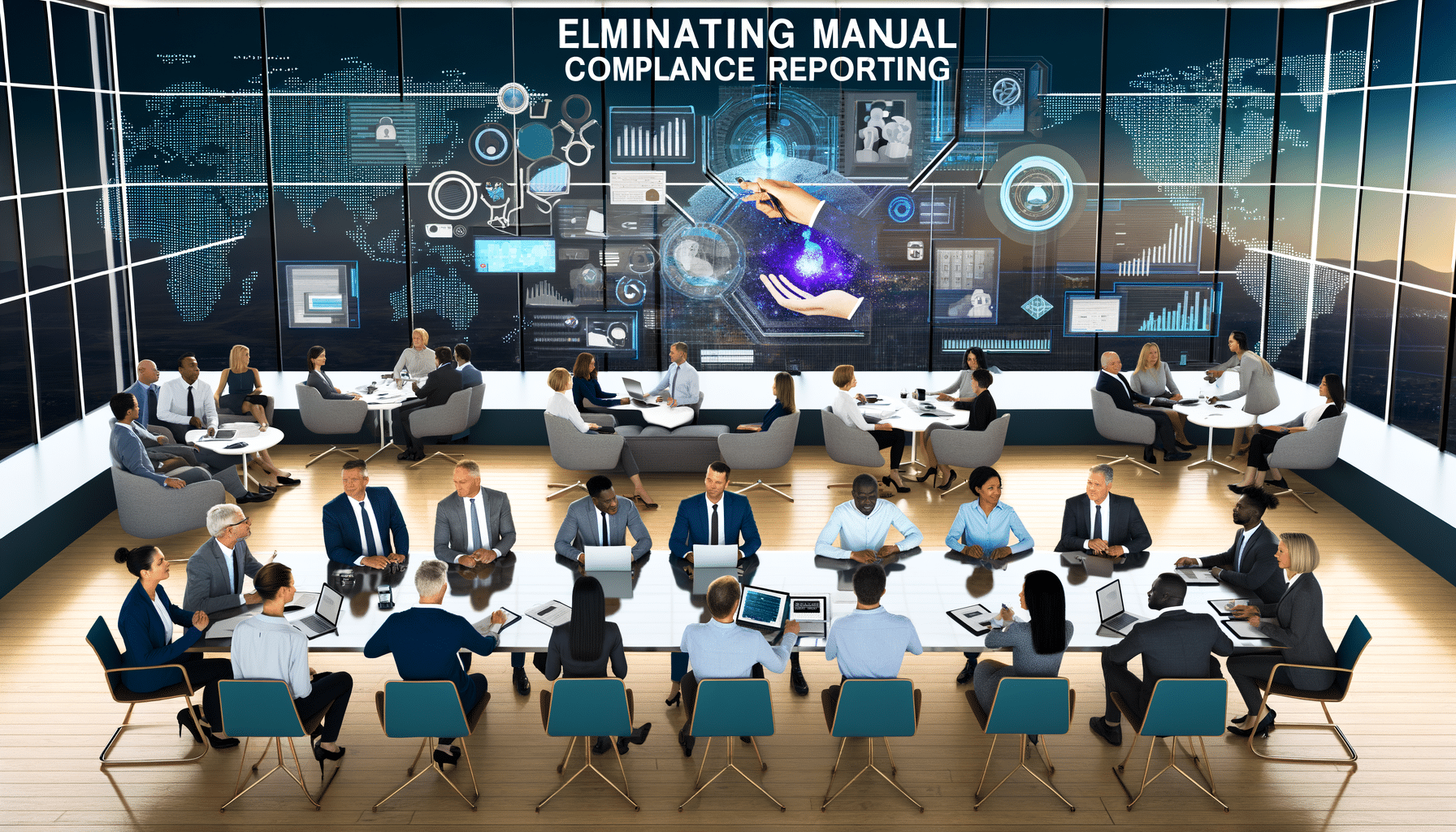- ESG Reporting
- March 22, 2024
How ESG Metrics Influence Financial Reporting Standards

Understanding the Role of ESG Metrics in Shaping Financial Reporting Standards
As a founder deeply entrenched in the confluence of technology and record management, I’ve witnessed firsthand the evolving landscape of values-driven business practices. One critical element in this transition is the increasing role of Environmental, Social, and Governance (ESG) metrics in financial reporting standards. It’s a subject that not only impacts the bottom line but also shapes the ethical framework of businesses worldwide.
The Rising Importance of ESG Metrics in Financial Reporting
ESG metrics are no longer just buzzwords or trendy concepts; they are pivotal to understanding a company’s impact beyond financial performance. The integration of ESG metrics into financial reporting reflects a broader acknowledgment that social responsibility and sustainability are vital to measuring an organization’s true value and risk.
Why ESG Metrics Matter:
- They offer insights into the long-term viability and ethical standings of an organization.
- ESG factors influence investor decisions, customer equity, and brand reputation.
- They demand accountability and transparency that align with modern consumer and regulatory expectations.
This raises a question that many might have: How exactly do ESG metrics influence existing financial reporting standards?
The Integration of ESG Metrics into Reporting Standards
Integrating ESG metrics into financial reporting is not merely about adding a set of numbers and narratives to annual reports. It involves re-evaluating what data is deemed valuable and how it’s measured. This shift is reflected in several key areas:
1. Enhanced Disclosure Requirements
Regulatory bodies globally are strengthening disclosure requirements around ESG factors. For instance, the European Union’s Sustainable Finance Disclosure Regulation (SFDR) mandates more comprehensive ESG data reporting, requiring firms to provide evidence of their sustainability claims.
2. Standardized Frameworks for ESG Reporting
Standardization is critical for comparability and coherence in ESG reporting. Bodies like the Global Reporting Initiative (GRI) and Sustainability Accounting Standards Board (SASB) develop frameworks that align ESG metrics with financial reporting standards, ensuring consistency and reliability across industries.
3. Impact on Corporate Strategy and Risk Management
Companies are increasingly integrating ESG metrics into their strategic planning and risk management processes. By doing so, they not only enhance their accountability but often discover new growth opportunities and mitigate potential risks.
Challenges in Integrating ESG with Financial Reporting
Despite the clear benefits, weaving ESG metrics into financial reporting is no walk in the park. Challenges abound:
1. Data Collection and Quality
Collecting relevant ESG data requires robust systems and processes. The sheer complexity and variability in data can be daunting for companies new to ESG reporting.
2. Interpretation and Materiality
Deciding which ESG factors are material can be subjective and sector-dependent, necessitating clear guidelines and criteria that align with financial reporting standards.
3. Potential for Greenwashing
The lack of strict standards can lead some companies to embellish their ESG achievements. Combating this requires stringent regulatory frameworks and vigilant monitoring.
The Future of ESG Metrics in Financial Reporting
The future is bright for ESG integration in financial reporting standards. As technology evolves, platforms like RecordsKeeper.AI will play a vital role in streamlining ESG data management and enhancing compliance—addressing both efficiency and transparency.
Organizations must recognize the strategic advantage that ESG metrics offer. By embracing ESG reporting, they not only align with emerging standards but also demonstrate their commitment to sustainability and resilience. This strategic pivot is no longer optional; it’s a defining factor in long-term success.
Conclusion: Embrace the Change
As we navigate this era defined by responsibility and transparency, ESG metrics stand as pivotal elements in aligning financial reporting with contemporary values. Embracing this evolution opens doors to responsible growth and underscores your company’s commitment to the greater good.
For those keen to remain at the forefront of ESG compliance and efficient record management, I invite you to explore the capabilities of RecordsKeeper.AI. Let’s join hands to shape a future where financial integrity meets sustainability, creating a world that’s accountable and forward-thinking. Feel free to follow me for more insights on integrating technology with sustainable business practices and strive towards a future where ESG considerations are embedded seamlessly into our business DNA.
Toshendra Sharma is the visionary founder and CEO of RecordsKeeper.AI, spearheading the fusion of AI and blockchain to redefine enterprise record management. With a groundbreaking approach to solving complex business challenges, Toshendra combines deep expertise in blockchain and artificial intelligence with an acute understanding of enterprise compliance and security needs.
Related Posts

Automating Compliance Report Generation
Implementing automated compliance reporting with AI technology.
- November 16, 2024

Eliminating Manual Compliance Reporting
Automating compliance reporting with AI technology.
- November 16, 2024
Archives
- January 2025
- December 2024
- November 2024
- October 2024
- September 2024
- August 2024
- July 2024
- June 2024
- May 2024
- April 2024
- March 2024
- February 2024
- January 2024
- December 2023
- November 2023
- October 2023
- September 2023
- August 2023
- July 2023
- June 2023
- May 2023
- April 2023
- March 2023
- February 2023
- January 2023
- December 2022
- November 2022
- October 2022
- September 2022
Want to get more content like this?
Signup to directly get this type of content to your inbox!!
Latest Post
Document Control for Equipment Maintenance
- January 20, 2025
Managing Records for Multiple Clients
- January 19, 2025
Handling Conference Documentation
- January 18, 2025
Setting Up Department Record Reviews
- January 17, 2025





